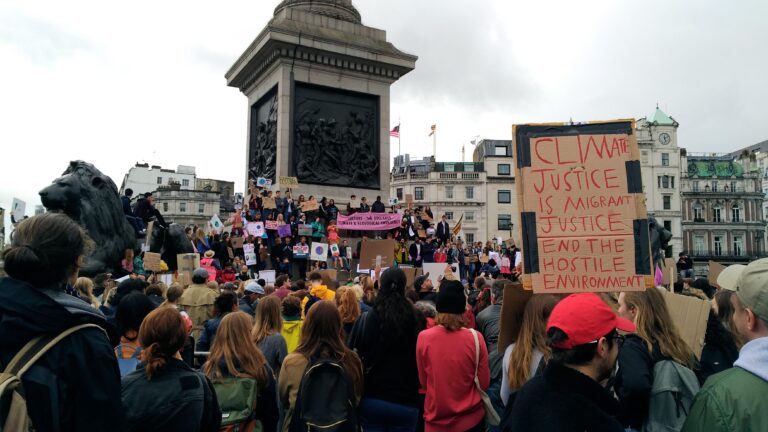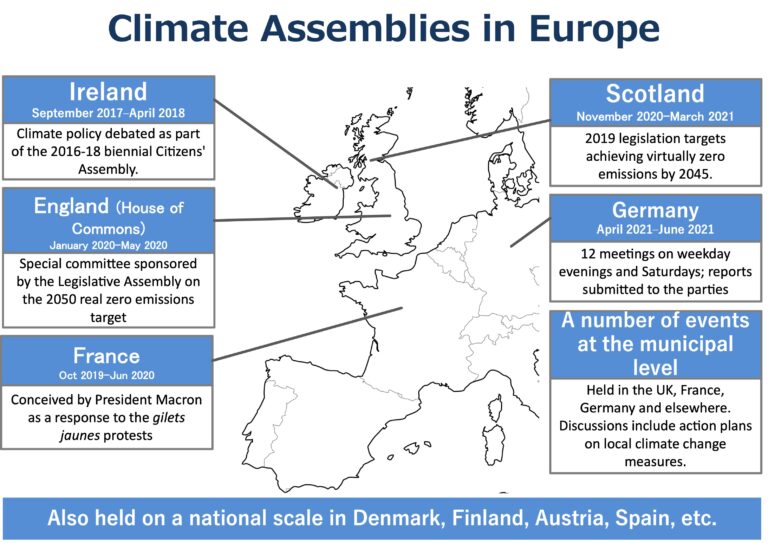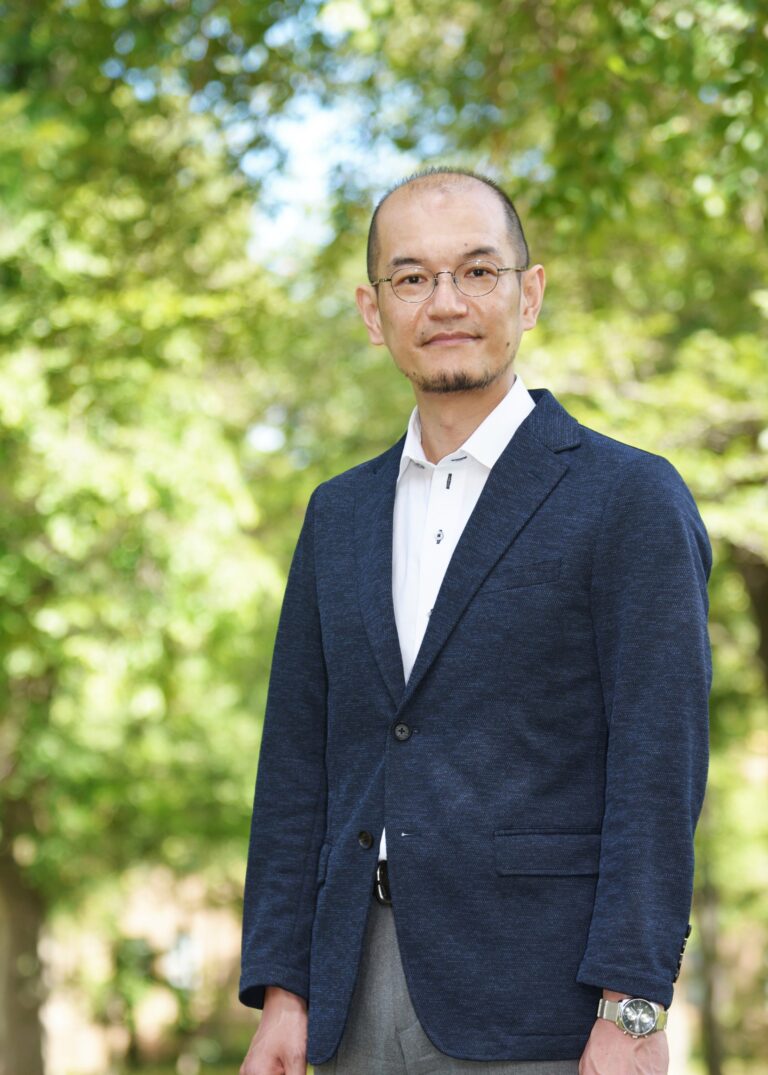This article first appeared in the special feature Understanding the Impact of Climate Change.
15 questions for climate change researcher Dr. Mikami (with subtitles).
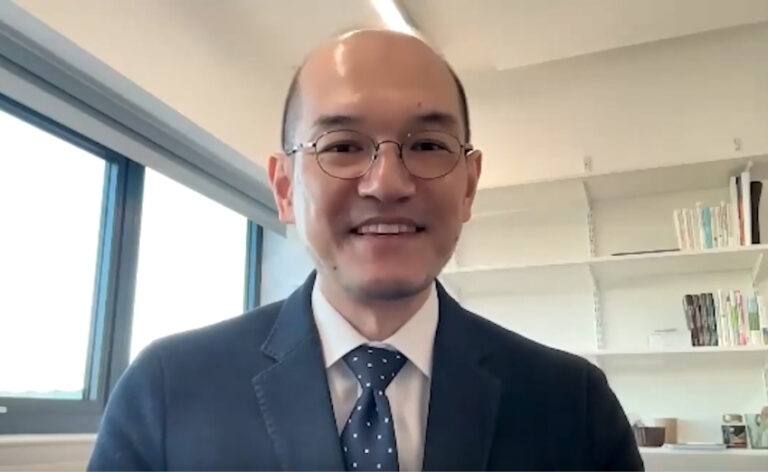
Associate Professor Naoyuki Mikami, Institute for the Advancement of Higher Education, Hokkaido University
When one thinks of climate change and efforts against global warming, one may think of the fields of natural science and technology. However, Associate Professor Naoyuki Mikami, who approaches the issue from a sociological perspective, points out that "global warming that requires drastic changes may not be feasible under the current democratic system." He is currently conducting research at Newcastle University in the UK, and spoke about 'climate change and democratic innovation.'
Climate change demands change from humanity
Greenhouse gas emissions have increased with industrialization since around the 19th century, and the average global temperature has risen by about 1.1°C to date. If emissions continue at this rate, it is predicted to rise by up to 5.7°C by 2100. However, even a rise of around 2°C is expected to have very large effects, such as melting glaciers and ice sheets, rising sea levels, impact on agriculture and fisheries, and flooding of rivers, which are already seen in the form of extreme weather events.
In 2015, an international agreement, the Paris Agreement, was reached to limit temperature rise to well below 2°C, preferably below 1.5°C. In order to achieve this, greenhouse gas emissions must be reduced to net zero worldwide by around 2050. This is so-called carbon neutrality.
There are things that individuals can do to reduce greenhouse gasses, such as moderating air conditioning or reducing the number of car rides. But more systemic changes across society are needed to realize the Paris Agreement.
Is democracy working?
In order to bring about such drastic change, social consensus is needed and various policy decisions, including legislative ones, are required. Essentially, it would be better if elected politicians could make appropriate policy decisions, but existing representative democracy is in some ways incompatible with climate policies.
As is the case with both parliamentarians and local councilors, elected politicians tend to focus on the issues of their constituencies and their terms of office. Global issues, such as climate change, that take place over decades-or even a century-are not often in the spotlight. It is also not always easy for elected representatives to make drastic reforms on climate change and energy issues, as they are forced to prioritize the interests of certain support groups and industry associations.
Furthermore, there are many elections in Japan where the turnout is below 50 percent. More than half of the population does not go to the polls for various reasons. This situation could lead to questioning whether elected representatives are adequately representing the people.
Citizens' Assembly on Climate - an innovation of democracy
The issue is that it is difficult to achieve climate policies that require drastic policy changes and lifestyle transformations under modern representative democracy. Achieving the transition to a decarbonized society requires a simultaneous renewal of the way societal decisions are made, 'democratic innovation,' so to speak.
A prominent example of this movement related to climate change is citizens' assemblies on climate change, or climate assemblies, a mechanism that has been spreading rapidly in European countries since around 2019. I am focusing my research on these climate assemblies. Climate assemblies are a new way for ordinary people to participate in municipal and national policy-making on climate change. Some are at the municipal level, others at the national level, but there are some common points.
First, participants are randomly selected to reflect the views of overall citizens. In other words, by lottery. The number of participants is then adjusted so that their gender, age and occupation are a microcosm of society as a whole. This is because the opinions of the entire population cannot be reflected if only those who are highly interested in global warming or those from a particular industry are involved.
Another key point is the provision of balanced information and deliberation. In many cases, participants are informed by experts in various fields over a period of several days before they enter into discussions. In order to ensure that the information is as balanced and fair as possible, this process is made transparent. The participants then discuss the issues over a period of weeks or months, culminating in policy recommendations.
Existing forms of participatory democracy include referendums, but climate assemblies differ from these in that they create a microcosm of society through random selection, there is a learning process for participants through the provision of balanced information, and participants then deliberate with each other. Recommendations made through such a process are likely to be more realistic and persuasive and more likely to be endorsed by a large number of people.
How can the recommendations be used in policy?
So, how are the recommendations made by climate assemblies translated into actual policies? In France, for example, a nationwide climate assembly was held from 2019 to 2020, and new laws to combat climate change were created based on the 149 recommendations that emerged from the climate assembly. Policies have already been decided, such as banning domestic flights to areas that can be reached within a certain time by rail, and making it mandatory to sell by weight in shops with more than a certain sales floor area (to reduce the use of containers).
How can the results of climate assemblies be respected and kept alive by the parliaments and governments that make the final decisions? One solution is to set up a system whereby the government or parliament that receives the recommendations responds to them properly. They will respond to each of the recommendations within a set period of time. If they cannot be utilized in policy, they should also give reasons for this. At the minimum, these commitments need to be made before the meeting is held.
Japan's first climate assembly held in Sapporo
The first climate assemblies in the UK and France were held very recently, in 2019. I have been watching these developments from the beginning, and as part of our research into the possibilities of using a similar approach in Japan, my collaborators and I decided to hold the first climate assembly in Japan. We then organized the Climate Assembly Sapporo 2020, the first climate assembly in Japan, from November to December 2020. The following year, another group held a more full-fledged version in Kawasaki, Kanagawa Prefecture, and in 2022, the local governments officially held the conference in Musashino City, Tokyo, and Tokorozawa City, Saitama Prefecture, and the use of climate assemblies is spreading in Japan.
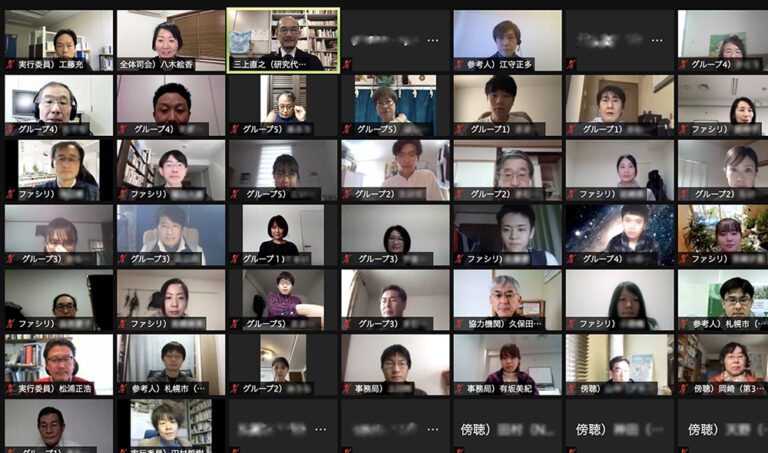
'Climate Assembly Sapporo 2020' in which participants were selected at random. The assembly was held online due to the pandemic.
The theme of the climate assembly in Sapporo was 'How Sapporo should realize the transition to a decarbonized society,' and three issues-the future vision of a decarbonized society, energy, and mobility and urban development/lifestyle-were discussed, and recommendations were compiled. The recommendations were used in the planning processes of the City of Sapporo.
In compiling the recommendations, a vote was held on 77 items. The results showed that while there were measures that most participants strongly supported in common, such as the improvement of school education and the spread of energy-saving buildings, there were also items on which opinions were divided, such as the realization of a car-free society.
The feedback from the participants was also interesting. Comments such as "At first I thought I was in the wrong place, but I learned a lot of things that are relevant to my own life" and "I had an image that [efforts against global warming] would make my life harder and restrict me, but I realized that we can aim for a decarbonized society while improving the quality of life" were heard. In general, many of the participants had a positive view of their participation in the citizens' assembly.
On the other hand, there are still challenges in terms of how to gather participants and how to link their recommendations to policy. What has emerged from researching European cases and holding actual assemblies in Japan is the issue of how to institutionalize citizens' assemblies, which are currently held on a one-off basis, and how to incorporate them into policy. In other words, a mechanism is needed to ensure that politicians take the recommendations of citizens' assemblies seriously.
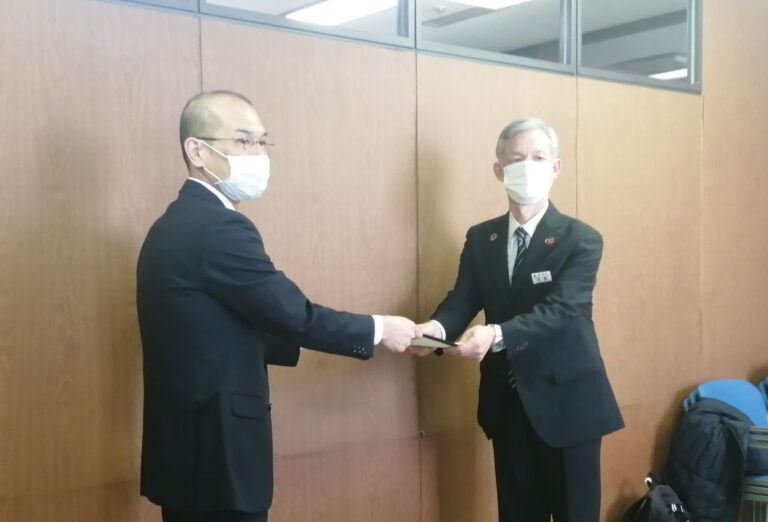
Associate Professor Naoyuki Mikami (left) hands over the Climate Assembly Sapporo 2020 Report to the Director General of the Sapporo City Environment Bureau (right).
Valued 'time' and 'camaraderie'I think the most important thing in research is ideas, but how do you generate those ideas? In my case, at least, I am not always good at having an instant flash of inspiration or being able to summarize something succinctly, so it is important to nurture ideas by doing things like researching things that interest me, thinking through matters thoroughly for myself, and broadening my horizons by coming into contact with things outside my field of expertise as often as possible. I place importance on nurturing ideas as I work hard at these things. There is no royal road to learning, as they say. In order to enjoy this kind of trial and error, I place importance on two things. The first is to make sure that I have enough time to think. The second is to have colleagues with whom I can discuss and criticize each other's ideas, as there are limits to what I can think on my own. I believe that 'time' and 'camaraderie' for generating ideas are the lifeline for me as a researcher. |
Written by Naoki Namba
Part of the special feature Understanding the Impact of Climate Change

